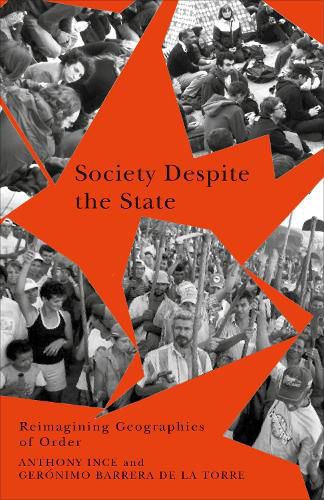Readings Newsletter
Become a Readings Member to make your shopping experience even easier.
Sign in or sign up for free!
You’re not far away from qualifying for FREE standard shipping within Australia
You’ve qualified for FREE standard shipping within Australia
The cart is loading…






The logic of the state has come to define social and spatial relations, embedding itself into our understandings of the world and our place in it. Anthony Ince and Geronimo Barrera de la Torre challenge this logic as the central pivot around which knowledge and life orbit, by exposing its vulnerabilities, contradictions and, crucially, alternatives.
Society Despite the State disrupts the dominance of state-centric modes of thinking by presenting a radical political geography framework inspired by anarchist thought and practice. The book also draws on a broad range of voices that hold affinities with Western anarchism but also exceed it.
The book challenges radical scholars to confront and understand the state through a gaze and set of intellectual tools that the authors have termed 'post-statism'. In de-centring the state's operational logics and rationalities, the authors incorporate a variety of threads to build a picture of an alternative way of understanding and challenging statism's effects on our spatial and political imaginations.
$9.00 standard shipping within Australia
FREE standard shipping within Australia for orders over $100.00
Express & International shipping calculated at checkout
The logic of the state has come to define social and spatial relations, embedding itself into our understandings of the world and our place in it. Anthony Ince and Geronimo Barrera de la Torre challenge this logic as the central pivot around which knowledge and life orbit, by exposing its vulnerabilities, contradictions and, crucially, alternatives.
Society Despite the State disrupts the dominance of state-centric modes of thinking by presenting a radical political geography framework inspired by anarchist thought and practice. The book also draws on a broad range of voices that hold affinities with Western anarchism but also exceed it.
The book challenges radical scholars to confront and understand the state through a gaze and set of intellectual tools that the authors have termed 'post-statism'. In de-centring the state's operational logics and rationalities, the authors incorporate a variety of threads to build a picture of an alternative way of understanding and challenging statism's effects on our spatial and political imaginations.